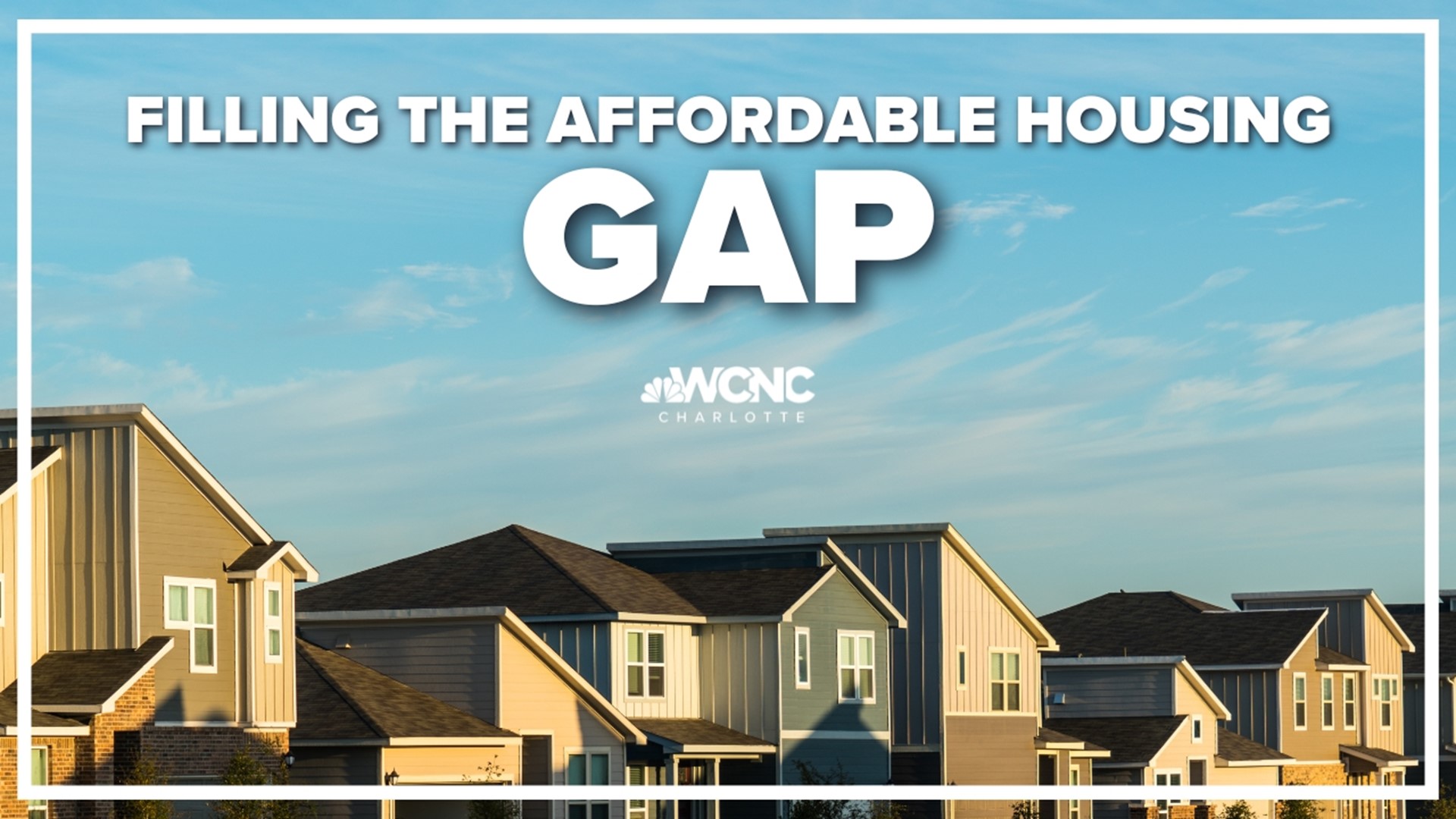CHARLOTTE, N.C. — There are families in the Queen City that have steady, good-paying jobs, but can’t find a home.
“The city is pushing us out,” Charlotte native Tanekka McCoy said. “I feel left out, lost, like I don’t belong here.”
Getting priced out is becoming all too common in Charlotte.
For McCoy, a willingness to work is not the problem. The problem is that her job doesn’t pay enough to live in Charlotte.
“I’ve worked hard, and I will work every day,” she said. “It’s either you’re in poverty, or you’re wealthy. There is no middle class working towards something.”
In Charlotte, rents have been rising, and development running rampant. All the growth is pushing out long-time residents.
“I’m shocked at what’s happening. I understand growth, and we have to evolve, but I think we need some type of balance,” McCoy said.
The average rent for a two-bedroom apartment in Charlotte is about $1,810, according to Zumper. McCoy says she can’t afford the market-rate housing, and she makes a little too much to qualify for affordable housing.
“We’ve got to provide a place for these families to go,” said Inlivian spokesperson Cheron Porter said.
Inlivian, which was formerly the Charlotte Housing Authority, is trying to come up with new solutions to provide workforce housing, which is built to serve families that are sitting in the middle, between true affordable housing and luxury housing.
Over time, on 8th Street and North Tryon in Uptown, there will be a 353-unit mixed-income apartment development called "Trella Uptown". It will cater to families of all types of income levels, including those left in the gap.
Of the 106 affordable housing units, 35 will be for residents earning 80% of the area median income (AMI), approximately $60,300 annually; two will be for residents earning 60% of the AMI, approximately $42,240 annually; 37 will be for residents earning 50% of the AMI, approximately $37,700 annually; and 32 units will be for residents earning 30% of the AMI or less, approximately $22,600 annually. Residents who earn 30% of the AMI or less will be provided with supportive services.
It also will include a co-working cafe, dog park, pool, fitness center, pickleball courts, and a rooftop lounge.
“We need to create a place in Charlotte where everyone can live, work, play, and pray,” Porter said.
Still, this type of housing is limited. The feeling of home, becoming out of reach for many.
“It’s an everybody problem,” McCoy said.
Contact Lexi Wilson at lwilson@wcnc.com and follow her on Facebook, Twitter, and Instagram.
This story is part of ‘I Can’t Afford to Live Here,’ a collaborative reporting project focused on solutions to the affordable housing crisis in Charlotte.
WCNC Charlotte is part of the Charlotte Journalism Collaborative (CJC), launched by the Solutions Journalism Network with funding from the Knight Foundation. The CJC strengthens the local news ecosystem and increases opportunities for engagement. It is supported by a combination of local and national grants and sponsorships. For more information, visit charlottejournalism.org.
HOME ASSISTANCE PROGRAMS IN CHARLOTTE

